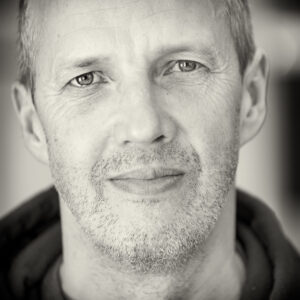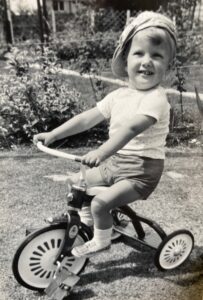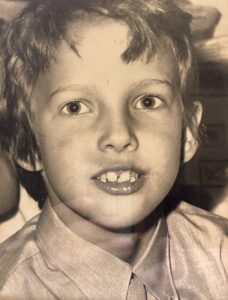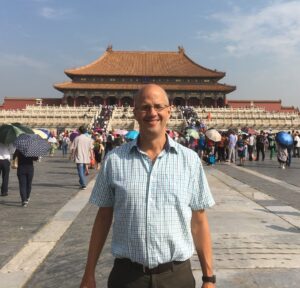 As far back as I can remember, I’ve always told heroic versions of my life to myself and others. My adoption is a classic example. I was chosen. I was special. Looking back now, I see that as a combination of shiny veneer – designed to look and feel good – and solid armour, to protect me from being hurt.
As far back as I can remember, I’ve always told heroic versions of my life to myself and others. My adoption is a classic example. I was chosen. I was special. Looking back now, I see that as a combination of shiny veneer – designed to look and feel good – and solid armour, to protect me from being hurt.
In 2016, it all started to unravel. The veneer cracked and the armour collapsed, exposing me to the glare and shame of reality. Seeing myself for the first time as a shrivelled, lonely, frightened man-boy was a shock and I knew I wouldn’t be able to un-see it and go back.
Strangely, in the midst of the trauma was the glimmer of a breakthrough – I felt a little lighter. This, together with the stoic support of my partner, helped to give me hope.
So I applied to Hoffman, having been recommended it by my coaching supervisor as part of my professional development. She’d said the previous autumn that I had ‘complex defensive structures’. At the time I was rather pleased because it sounded cool. It turns out not to be so cool after all.
I knew before I arrived that I was in the right place. The pre-course work was hard-core; paperwork has never made me cry before and I realised there would be nowhere to hide.
During my enrolment call, it was suggested that my neonatal adoption may have had a profound impact on the person I’d become – ‘an unconscious near-death experience’ was the phrase I wrote down.
 Doing Hoffman was transformational for me; and I use that word on purpose, knowing it sounds like a cliché. The week itself felt like an overwhelming assault on my emotions after 51 years of hiding. Its structure held me like a warm blanket, so that I felt safe to explore, feel shame, learn, forgive, feel vulnerable, start to heal, feel joy.
Doing Hoffman was transformational for me; and I use that word on purpose, knowing it sounds like a cliché. The week itself felt like an overwhelming assault on my emotions after 51 years of hiding. Its structure held me like a warm blanket, so that I felt safe to explore, feel shame, learn, forgive, feel vulnerable, start to heal, feel joy.
Doing the Process made it blindingly clear to me that the early hours, days, weeks, months of my life mattered enormously in shaping the patterns of feeling, thinking and behaviour that made up my personality.
The exercises we took part in on the course generated experiences and reflections that had a profound effect on me. As if for the first time, I could see and feel things as they really were.
On the last day, we were encouraged to talk about the future. The main thrust of the conversation was about the intentions and commitments we were prepared to make to support our ongoing healing. In among this, I found myself promising to find a way to help other adopted people. At the time, I wasn’t sure how I was going to do this; I simply knew it was what I was meant to do.
 I came away from the Process feeling lighter and more alive. For a while, I was very sensitive to every thought or behaviour; my mind attuned to even the most subtle experiences. It took a while to realise that this is what a life without veneer and armour is like. This is what it feels like to be vulnerable.
I came away from the Process feeling lighter and more alive. For a while, I was very sensitive to every thought or behaviour; my mind attuned to even the most subtle experiences. It took a while to realise that this is what a life without veneer and armour is like. This is what it feels like to be vulnerable.
Over the following two years, I lost four close relatives, including my mother to a cruel, destructive dementia. Since then I’ve had open heart surgery and been made redundant and, of course, lived through a global pandemic. It might seem strange, but I feel lucky to have been able to experience all of these things fully and painfully, without hiding or avoidance.
Five years on, it still feels like an on-going process of growing and healing. I’m in pretty good shape and fully awake to the choices I am making. I feel hyper-aware in a way that I was previously deadened to and can spot the warning signs of past patterns being triggered really early.
I’m incredibly appreciative of my family for their support throughout this; their love and care for me fires my heart with warmth and gratitude.
In the past year, I realised I was ready to make good on my 2016 promise. After the redundancy, I decided to set up a new venture, Still Waters, where I’d work on things that mattered to me. As an experienced coach, teacher and mentor, I decided to offer my time to create something for fellow adoptees. And also to share stories and to explore what is known about adoption. So that’s what I’ve done. It’s still very much evolving, but I feel healed enough now to serve others. Please feel free to visit my website and to get in touch. I’d love to hear your story, and I’d love to help if you need it.
After the redundancy, I decided to set up a new venture, Still Waters, where I’d work on things that mattered to me. As an experienced coach, teacher and mentor, I decided to offer my time to create something for fellow adoptees. And also to share stories and to explore what is known about adoption. So that’s what I’ve done. It’s still very much evolving, but I feel healed enough now to serve others. Please feel free to visit my website and to get in touch. I’d love to hear your story, and I’d love to help if you need it.
I’ve captured five lessons that Hoffman taught me that I believe will be helpful if you’re planning to do the Process. For me, they have also become important reminders of how to live a life as an adopted person.
- Go at things wholeheartedly. Being halfhearted won’t get the job done. This means taking the armour off, putting cynicism to one side and saying a big ‘YES’ to what I’m called to do.
- Be curious and willing to be altered. This might seem an unnecessary suggestion, or blindingly obvious, but in my case my ‘complex defensive structures’ enabled me to have a lifetime of personal development interventions without altering the fundamental patterns that ran my life. So seeing my resistance to being altered as simply a defence mechanism designed to keep me ‘safe’ was a personal breakthrough that opened the floodgates to transformational learning.
- Don’t expect people to get it, particularly if they’ve been hurt by you in the past. They may well see your quest to understand yourself better as an attempt to justify or make excuses for who you are or what you’ve done.
- Maintain supportive connections. It can be lonely processing all the learning and continuing to heal, so finding a way to stay connected with people who ‘get it’ is helpful.
- Be Accountable. The process of healing, learning and growing doesn’t end unless you decide it does. For me, it’s a lifetime commitment to never go back to the days of veneer and armour, no matter how heroic it made me feel at the time.
For information and support for adoptees, click here
For resources on creating and sustaining positive change for individuals and organisations, visit: www.stillwaters.world
We’d like to thank Nick for sharing his Process Story with the Hoffman community.





 Sign up to receive monthly newsletters from Hoffman
Sign up to receive monthly newsletters from Hoffman